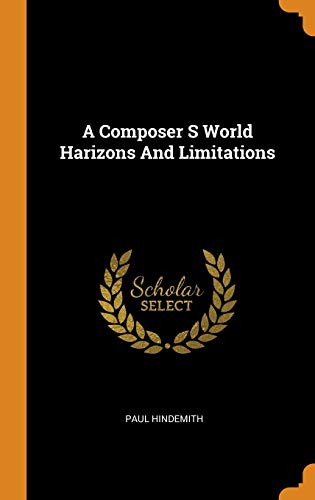Hard to get through.
I have enormous respect for Hindemith as a composer. His style is unique, engaging, and exciting even as it is dense, difficult, and maybe a bit academic. Perhaps to be expected this book is also dense, a bit hard to digest, and academic/esoteric. Occasionally exciting, it offers up the occasional gem for an intrepid reader, including a long discussion of equal temperament and a defense of his legendary practice of forcing his composition students to be proficient enough on each instrument they wrote for to personally play all their own compositions.

